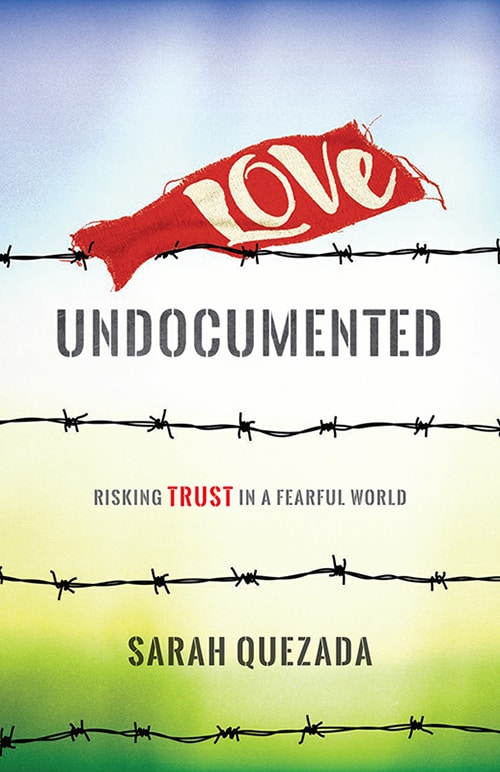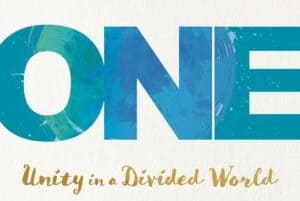
My cell phone rang while I was at work. I picked it up and closed my office door. “My mom called,” my fiancé Billy told me, his voice small and quiet. “She and my dad were denied visas for the wedding.”
I sat silently for a moment, stunned. “What?” I finally asked. “But they met all the requirements!”
“I know,” came the barely audible reply.
I was dumbstruck. I knew Billy had violated immigration laws by overstaying his tourist visa, and as a consequence of that decision we were walking together through the process of lawyers and fees and paperwork. But his parents were trying to do things “the right way.” In my mind, it was all very simple. Billy and I were having a wedding. We wanted the parents of the groom to attend. They applied for the appropriate visa and met all the requirements. Bada bing! Bada boom! Thank you for our tourist visas!
Billy had violated immigration laws by overstaying his tourist visa, and as a consequence of that decision we were walking together through the process of lawyers and fees and paperwork. But his parents were trying to do things “the right way.”
Billy told me his mom was crying, distressed by this devastating news. Lucky—the woman who had previously welcomed me into Guatemala, kissed my cheeks, and served me coffee with champurradas—was not welcome in my homeland. She was being denied entry to attend one of the major life events in a family. She would miss her baby son’s wedding. We tucked the sorrow in our hearts and kept looking ahead toward our wedding. Even as Billy’s guest list dwindled, we tried to stay focused on the jubilee of our marriage.
Celebration is a wonderfully biblical concept, and one worth exploring. In his book on spiritual disciplines, The Life You’ve Always Wanted, John Ortberg has a chapter titled “A ‘Dee Dah Day’: The Practice of Celebration.” I love the framing of celebration as a spiritual discipline. Ortberg writes, “When we celebrate, we exercise our ability to see and feel goodness in the simplest gifts of God. We are able to take delight today in something we wouldn’t have even noticed yesterday. Our capacity for joy increases.” Could a discipline of celebration create sacred space to notice God’s lavish love? Could it provide respite and balance amid suffering and sorrow? How can we lean into Christmas joy in the midst of both personal and global pain and hurting?
It is impossible to disentangle beauty from pain, joy from suffering, and celebration from sorrow. For so many people in the world, sorrow and suffering are inescapable, and yet…
“And yet”: here is a beautiful conjunction that God offers us. And yet celebration exists! It is a true testament to the resilience of people and the faithfulness of God that the suffering of this world does not shut down the block parties. At our wedding, Billy and I pressed our heads together over a cell phone during our reception to hear his parents’ words of joy and blessing. We thanked them and promised to deliver a DVD and attend a reception once we were able to visit Guatemala together.
Sadness and celebration. Pain and beauty. Heartache and joy. To be honest, I am grateful that these intermingle. Because sometimes the burdens facing our families, our neighbors, and our world feel crushing. As one who grew up isolated from so much of the world’s pain, I often found myself overwhelmed when I encountered another tragedy or injustice. When I sat in an Atlanta public school room tutoring three illiterate sixth graders. When I heard stories of refugees who’d suffered loss of home, family separation, and violence. When I stood at the U.S./Mexico border in Tijuana and looked at the endless crosses adorning the wall with the names of those missing or lost after they headed north to the United States. And while we wait this past Christmas for Congressional action for “Dreamers,” undocumented immigrants who were brought to the United States before age sixteen.
When the deep, heart-twisting realities of injustice, racism, and poverty settle in, it can feel as if you’re suffocating. But there is nothing new under the sun. And I am reminded that many resilient people have walked faithfully in the midst of suffering and persecution and injustice for generations. And they have much to teach us.
At one time or another, most of us have likely credited those living in hard circumstances for teaching us about contentment. Our service project and mission trip debriefings often include variations on the theme of how we should push away our disgruntled or disappointed thoughts because (thank God!) we don’t have it as bad as the people we just served.
Yet while contentment is certainly an important lesson, I am convinced that people living on the margins have so much more to teach us than shallow gratefulness for material things. They can teach us how to hope. They can teach us how to anticipate justice while maintaining our dignity in the waiting. They can teach us how to fight. And they teach us how to celebrate and truly live amid unspeakable suffering.
When we are isolated from groups who have deeply known suffering, can we truly know heart-drenching joy?
It is this steadfast resilience and belief in God’s faithfulness that inspires me and that enriches the body of Christ. When our churches are too often divided by society’s barriers, we miss so much from each other. Sometimes those who have experienced the most tragedy are the only ones who can truly teach us how to worship the Lord with delight. When we are isolated from groups who have deeply known suffering, can we truly know heart-drenching joy? We are incomplete in the body of Christ if we remain in our siloed communities defined by race, culture, country of origin, language, and socioeconomic status.
There is a place and a time to mourn injustice. Absolutely. There is a time to fight back against those who abuse and exploit the vulnerable. Of course. But that space cannot be the end of the journey. We grieved the absence of family and loved ones who were not permitted to celebrate our wedding with us. At the same time, we were pushed to pray and hope and fight, all the while still celebrating with dignity and delight. Those who have suffered can teach us what it truly means to be blessed. They can teach us how to hope.
Sarah Quezada is a writer and nonprofit professional in Atlanta, Georgia. Her writing has been published in Christianity Today, Relevant, Sojourners, SheLoves, and InTouch Ministries, among others, and she has worked with Azusa Pacific University, Mission Year, and the Christian Community Development Association. She and her husband, Billy, facilitate visits to immigrant detainees at Stewart Detention Center in partnership with El Refugio Ministry, and are the parents of two children. Excerpted from Love Undocumented: Risking Trust in a Fearful World (Herald Press, 2018). All rights reserved. Used with permission.


